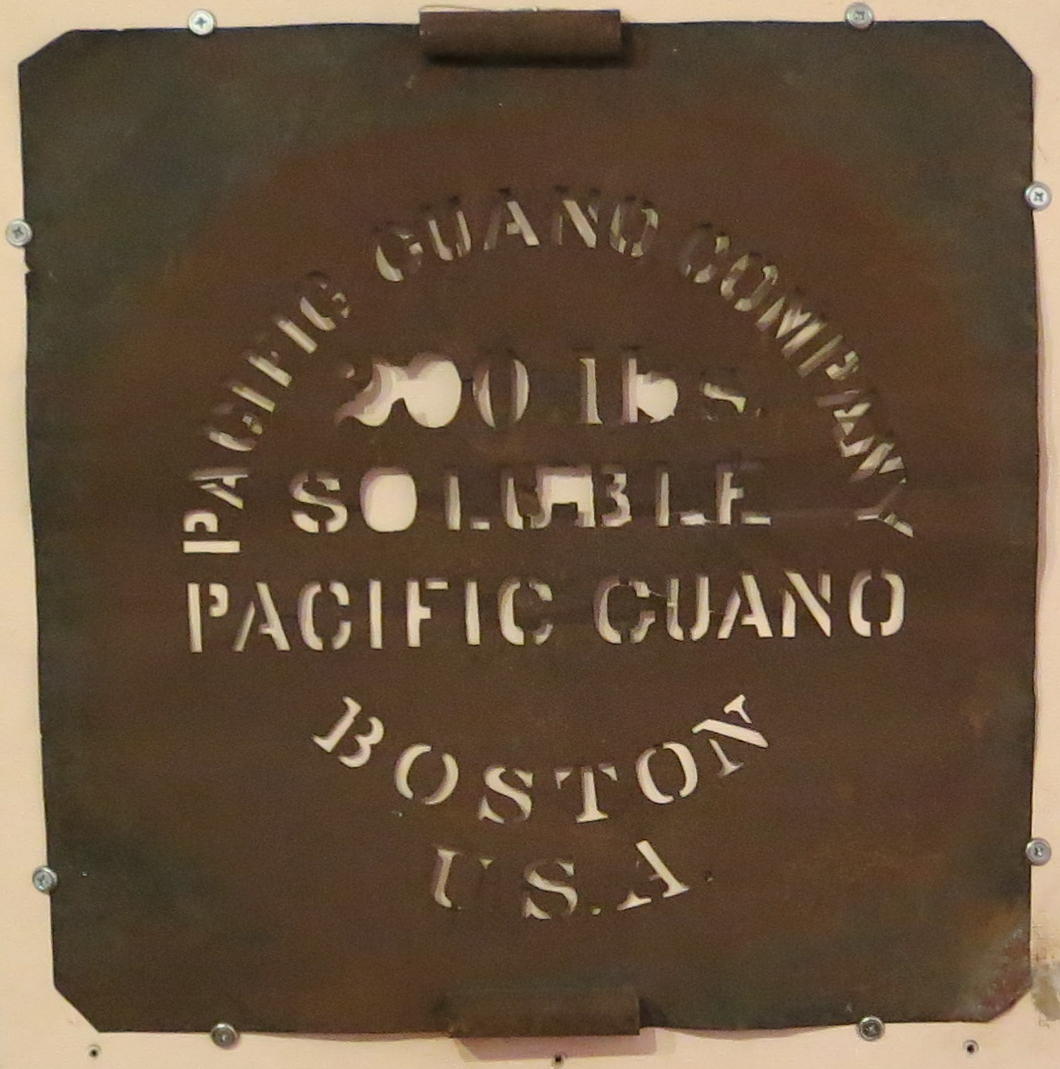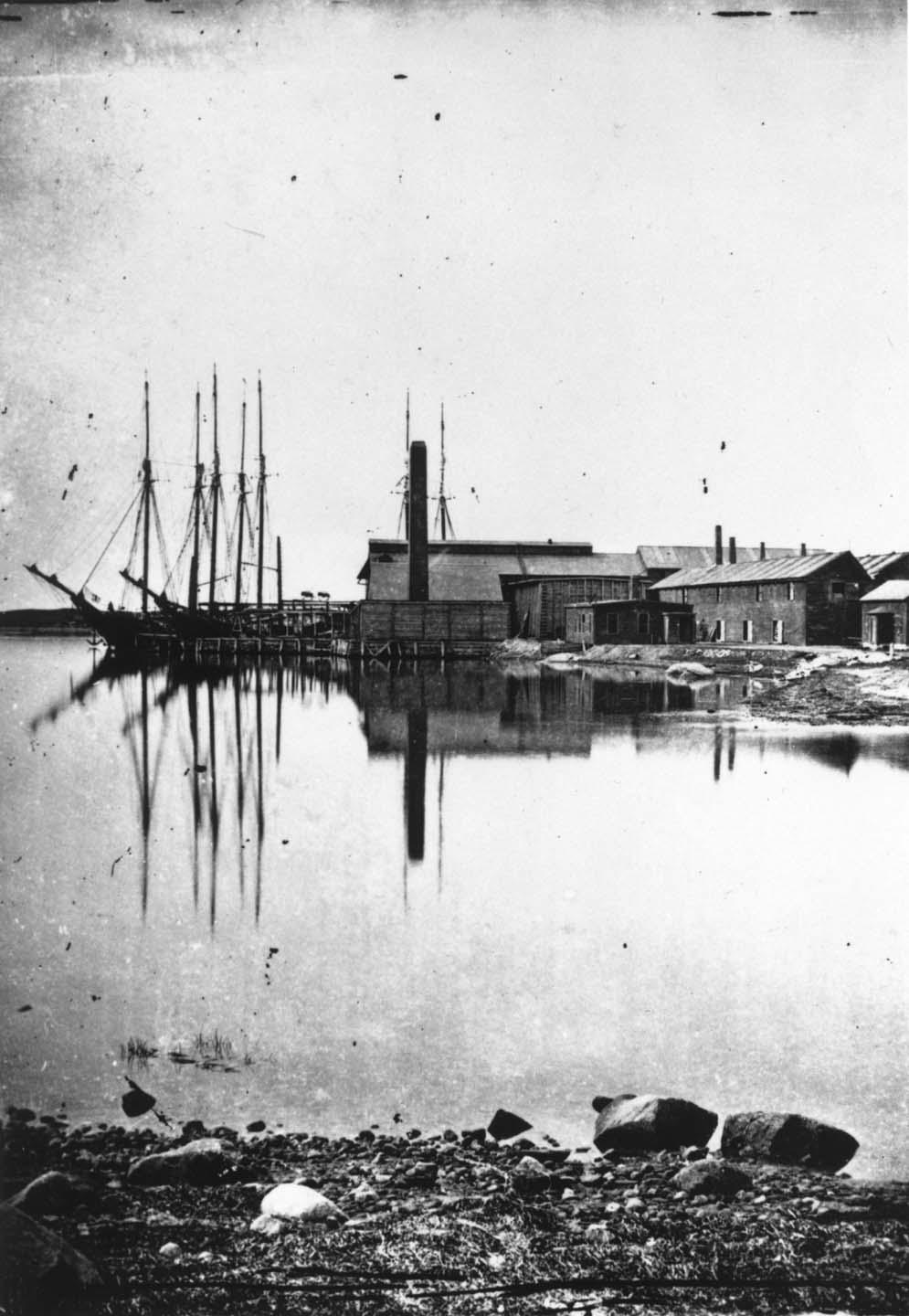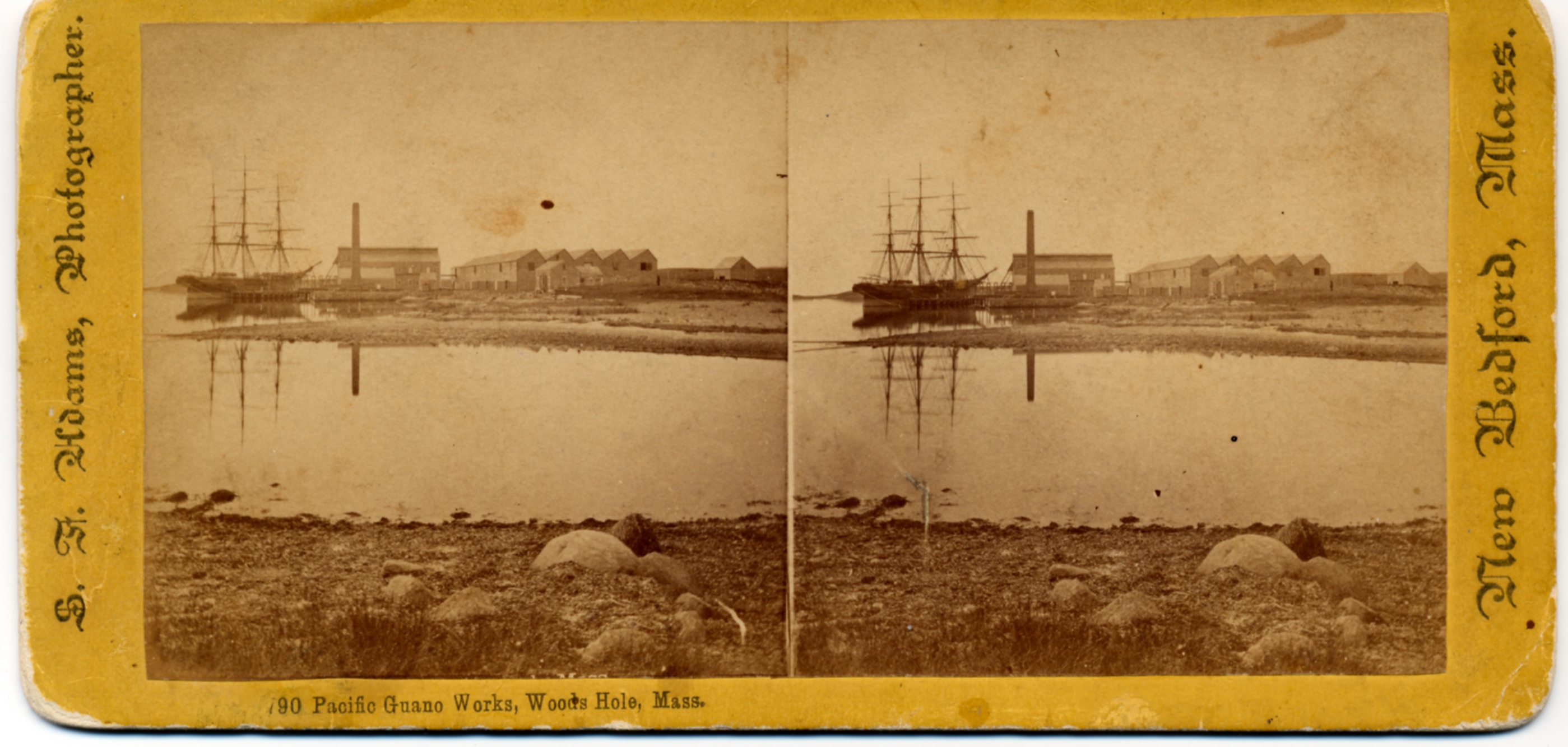- Introduction
- Early Years
- Fishing and Whaling
- The Guano Company
- The Fish Market
- Stores and Markets
- Drug Stores
- Garages and Parking Lots
- Coal
- Restaurants, Ice Cream Parlors, Bars
- Tea Rooms
- Hotels and Boarding Houses
- The Breakwater Hotel
- --------
- Walter Luscombe, Entrepreneur
- Franklin Gifford, Painter
- Michael Walsh, Gardener
- Barbers
- Blacksmiths
- Carpenters
- --------
- About
The Pacific Guano Company

After 1859 another business took on the role of causing nasty smells to waft over Woods Hole. Whaling had declined during the Civil War due to the ships being constantly harrassed, seized and destroyed by Confederate raiders. After the war, whaling ships often worked out of San Francisco, even though their owners and captains were from the east coast. Whaling was concentrated in the Pacific.

Metal stencil for labeling Pacific Guano Company fabric bags holding fertilizer.
The Civil War had also affected the trade from the Orient to the U.S. and there were less ships hired to transport goods; this depression in the shipping industry began around 1857 even before the war. Asa Shiverick Jr. of East Dennis, whose father and uncles had built the extreme clipper ships Revenue, Hippogriffe, Belle of the West, Kit Carson, Wild Hunter, Webfoot, Christopher Hall and Ellen Sears, joined some of the ships’ owners and captains and investors from Boston and New York in creating a new company in 1859 which would utilize their idle ships and ships returning empty from the Orient: the Pacific Guano Company. Captain Prince Sears Crowell of East Dennis and Asa Shiverick Jr. moved to Woods Hole, which was the site chosen for a plant to manufacture fertilizer.
The fertilizer manufactured by the Pacific Guano Company was composed of bird guano imported from islands in the Pacific, processed local menhaden, pogy and other small local fish, and sulfur also brought by ships from Italy.
The village was changed dramatically by the building of the Guano Company, located on “The Neck” (later called Penzance Point), the most western point of Woods Hole. Many workers, about 200, mostly Irish Catholic, were hired by the Company and added greatly to the population of Woods Hole. Boarding houses, and many modest homes were built to accomodate the workers. A new Roman Catholic church was built for them (St. Joseph on Millfield Street). An very unpleasant side-effect of the manufacturing process was the stench of fish gurry which blew over the village on the prevailing winds. So Woods Hole still stank!
The Company gradually lost market share due to the scarcity of bird guano and creation of artificial fertilizers. It went bankrupt in 1889.

Ships bringing guano from the Pacific islands off Peru and phosphates from Italy are docked at the Pacific Guano factory on Penzance Point (then known as Long Point).
